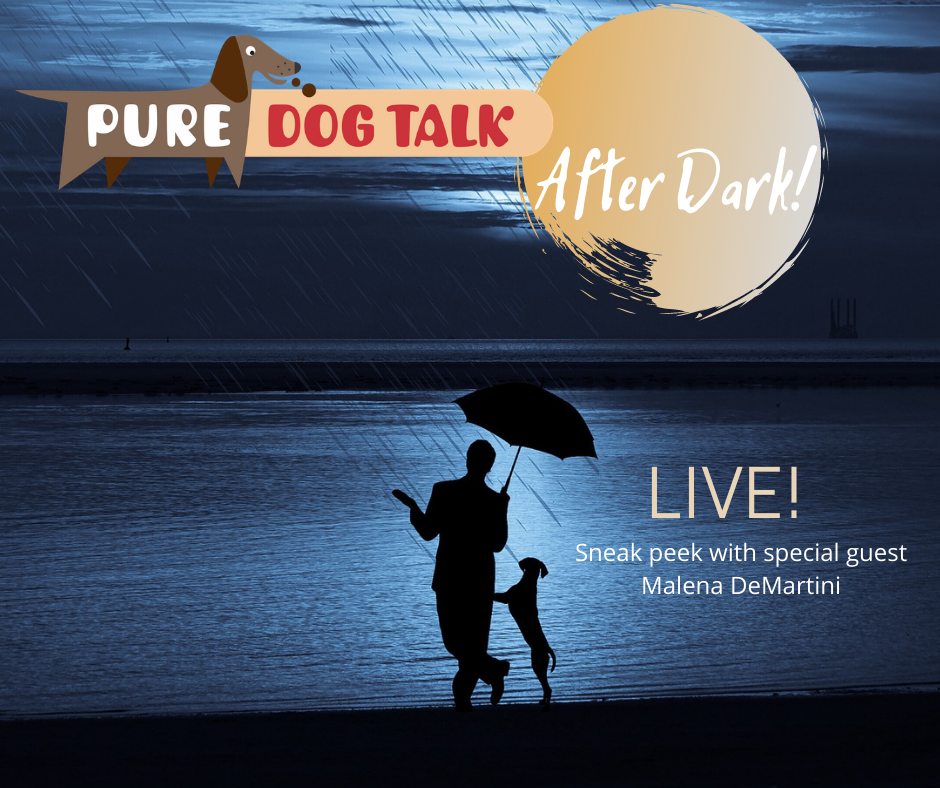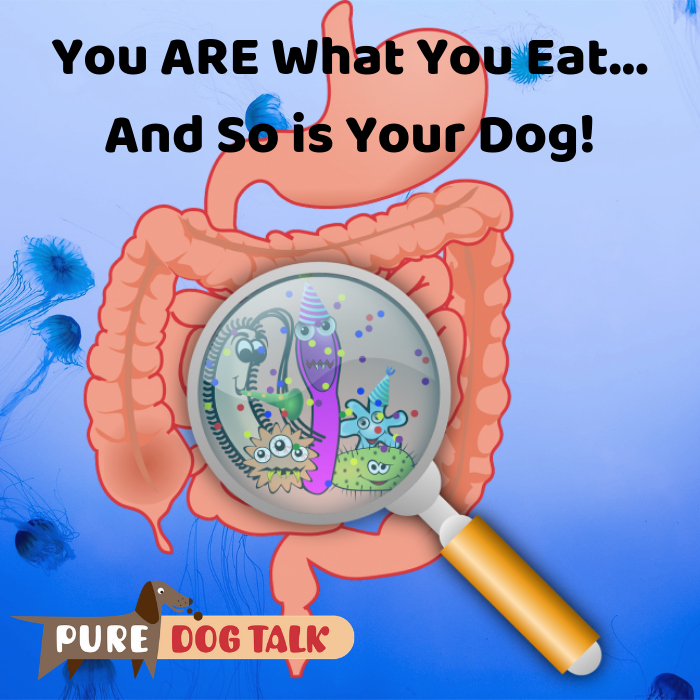479 – Anxiety, FOMO or Frustration?
Anxiety, FOMO or Frustration?
Malena DeMartini on Ringside Anxiety Management – After Dark Special
Join host Laura Reeves and special guest Malena DeMartini for a sneak peek inside the Pure Dog Talk Patrons After Dark virtual gatherings.
This month our group was able to speak directly with DeMartini, canine behavior expert specializing in separation anxiety. We’ve brought you a bit of an excerpt. If this seems like your kind of group, join us by submitting your Patronage pledge here.
DeMartini walks us through signs owners can watch for that will help them determine if their dog is experiencing anxiety, FOMO (fear of missing out) or frustration ringside or in daily life. She specifically separated the behaviors associated with each of these mental states and then offered suggestions on how to manage each one.
Group members were able to join in the conversation virtually and receive specific advice from DeMartini about various situations with specific dogs in their households. From mild FOMO to significant arousal near other dogs, DeMartini talked us through several of her processes for addressing the issues at hand.
DeMartini and Patron Sandy MacArthur, a 30-year veterinary technician, discuss the pros and cons of treatments for anxiety, primarily discussing various homeopathic remedies. DeMartini noted that for dogs with classic separation anxiety, these are like pouring chamomile tea on a human with a sleep disorder.
“I do believe that training can be very effective,” DeMartini said. “What we did 20 years ago versus what we do now is very different.
“Dogs don’t particularly generalize well. So, if I teach my dog to stack only in my living room and then I expect to go into the show ring. Good luck with that. I think that sometimes we forget that a little bit when we talk about bringing them to different environments. When it comes to anxiety, whether that’s in a crate, whether that’s out of the crate, if people are the general simulators that are influencing your pup, then that needs to be worked on well before you get to a show ring.”
We hope to see YOU After Dark next time.
320 – You ARE What You Eat and So is Your Dog
You ARE What You Eat and So is Your Dog
Dr. Diane Brown, CEO of the AKC Canine Health Foundation, joins us again to talk about fascinating new research on the “gut-brain axis.” In other words, the microscopic bugs inside the dog’s body are being proven to interact with what’s going on in its brain.
From the CHF Newsletter: “The adage “you are what you eat” may be more profound than we ever realized. A growing body of evidence shows a complex system of two-way communication between the gastrointestinal (GI) tract and neurologic system in humans and dogs. The link between GI health and diseases such as multiple sclerosis, autism, and epilepsy has been studied in humans. In fact, patients with celiac disease or inflammatory bowel disease have an increased risk of developing epilepsy. Since the community of microorganisms that live in the digestive tract – known as the gut microbiome – plays an important role in GI health, what impact does it have on neurologic disease? AKC Canine Health Foundation (CHF) funded researchers are exploring the role of this microbiomegut-brain axis in canine epilepsy.”
http://www.akcchf.org/educational-resources/library/articles/AKC-CHF-Discoveries-Summer-2019.pdf
Gut microbiome
“The bacteria that live in the gut have been shown to have importance to both health and disease,” Brown said.
CHF research is determining what type of bugs normally live in the gut (literally any part of the digestive system from top to bottom). Which ones of those bugs are pathogens and which ones prevent disease is an enormous topic.
Many of us understand, for example, that antibiotics completely change the gut microbiome. But this new research is documenting associations with other disorders, including the impact of bacterial content in the gut and how it is influencing epilepsy and anxiety.
Using proprietary probiotics to manage post-antibiotic diarrhea is one thing. But Probiotics used over the course of six weeks are showing an impact on anxiety behaviors in dogs, providing a non-drug-based treatment for this frequent issue in all dogs.
Poop is cool!
Researchers speaking at a recent CHF conference even discussed using fecal transplants, delivered as an enema, to transplant healthy flora fecal material thereby improving the health of the dog.


